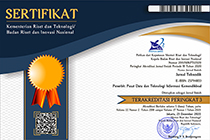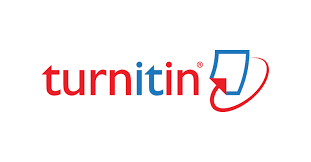Analisis Komparatif Generative Artificial Intelligence: ChatGPT,Gemini, dan Perplexity sebagai Media Pembelajaran Akuntansi
Keywords:
ChatGPT, Gemini, Perpelxity, AccountingAbstract
This study aims to analyze the comparative performance of three AI platforms (ChatGPT, Gemini, and Perplexity) as learning media for Accounting 1, based on the Sub-CPMK outlined in the Semester Learning Plan (RPS). The research employs a Qualitative Comparative Analysis (QCA) method, evaluating platform responses using six criteria: accuracy, clarity, coherence, engagement, scalability, and informativeness. The results reveal that ChatGPT scored the highest (96%), followed by Gemini (92%) and Perplexity (91%). ChatGPT excels in clarity, engagement, and informativeness; Gemini shows strength in scalability, while Perplexity performs consistently in accuracy and coherence. This study highlights the importance of adaptive and collaborative AI utilization in Accounting 1 learning to enhance educational quality while ensuring ethical and secure usage.
References
Adiyanto, & Febrianto, R. (2020). Authentication Of Transaction Process In E-marketplace Based On Blockchain technology. Aptisi Transactions On Technopreneurship (ATT), 2(1), 68–74. https://doi.org/10.34306/att.v2i1.71
Ambarita, N., & Nurrahmatullah, M. F. (2024). Impacts of Artificial Intelligence on Student Learning: A Systematic Literature Review. Jurnal VARIDIKA, 36(1), 13–30. https://doi.org/10.23917/varidika.v36i1.4730
Ardiansyah. (2020a). Implementasi Akuntabilitas Melalui Evaluasi Online Di Era Revolusi Industri 4.0. JURNAL MANEKSI, 9(1), 355–361. https://doi.org/https://doi.org/10.31959/jm.v9i1.401
Ardiansyah. (2020b). Efektivitas Praktikum Mandiri Akuntansi Perusahaan Dagang Berbasis Youtube Selama Covid-19. Studi Akuntansi Dan Keuangan Indonesia, 3(2), 265–286. https://doi.org/10.21632/saki.3.2.265-286
Ardiansyah. (2022). Virtual Synchronous Learning of Manufacturing Accounting In Supporting Learning Effectiveness. Jurnal Teknodik, 26(1), 49–68. https://doi.org/https://doi.org/10.32550/teknodik.vi
Ardiansyah, A. (2023). Pendampingan Perancangan Chatbot Sebagai Media Interaktif Dalam Menghadapi Tantangan Era Digitalisasi. Lamahu: Jurnal Pengabdian Masyarakat Terintegrasi, 2(1), 44–55. https://doi.org/10.34312/ljpmt.v2i1.18078
Ardiansyah, & Sari, H. F. A. (2023). ANALISIS MINAT MAHASISWA DALAM MENGGUNAKAN APLIKASI CHATBOT PADA MATA KULIAH AKUNTANSI. Jurnal Teknodik, 27(1), 33–50. https://doi.org/10.32550/teknodik.vi.1009
Azizah, M. A., & Mansyur, J. (2024). Perbandingan Kapabilitas Respons Chatgpt Dan Gemini Terhadap Pertanyaan Konseptual Tentang Optik. Jurnal Pendidikan Fisika Tadulako Online (JPFT), 12(1), 15–25. https://doi.org/https://doi.org/10.22487/jpft.v12i1.3510
Banh, L., & Strobel, G. (2023). Generative artificial intelligence. Electronic Markets, 33(1), 63. https://doi.org/10.1007/s12525-023-00680-1
Bartlett, L., & Vavrus, F. (2017). Comparative Case Studies: An Innovative Approach. Nordic Journal of Comparative and International Education (NJCIE), 1(1), 5–17. https://doi.org/10.7577/njcie.1929
Bingham, A. J., Dean, S., & Castillo, J. (2019). Qualitative comparative analysis in educational policy research: Procedures, processes, and possibilities. Methodological Innovations, 12(2), 1–13. https://doi.org/10.1177/2059799119840982
Bond, M., Khosravi, H., De Laat, M., Bergdahl, N., Negrea, V., Oxley, E., Pham, P., Chong, S. W., & Siemens, G. (2024). A meta systematic review of artificial intelligence in higher education: a call for increased ethics, collaboration, and rigour. International Journal of Educational Technology in Higher Education, 21(1), 1–41. https://doi.org/10.1186/s41239-023-00436-z
Chen, L., Chen, P., & Lin, Z. (2020). Artificial Intelligence in Education: A Review. IEEE Access, 8, 75264–75278. https://doi.org/10.1109/ACCESS.2020.2988510
Cilesiz, S., & Greckhamer, T. (2020). Qualitative Comparative Analysis in Education Research: Its Current Status and Future Potential. Review of Research in Education, 44(1), 332–369. https://doi.org/10.3102/0091732X20907347
Devianto, Y., & Dwiasnati, S. (2020). Kerangka Kerja Sistem Kecerdasan Buatan dalam Meningkatkan Kompetensi Sumber Daya Manusia Indonesia. Jurnal Telekomunikasi Dan Komputer, 10(1), 19–24. https://doi.org/10.22441/incomtech.v10i1.7460
Dutta, D. (2017). Developing an Intelligent Chat-bot Tool to assist high school students for learning general knowledge subjects. Georgia Institute of Technology, 13. https://smartech.gatech.edu/bitstream/handle/1853/59088/final_paper_ddutta31.pdf?sequence=1&isAllowed=y%0Ahttps://smartech.gatech.edu/handle/1853/59088
Greckhamer, T., Furnari, S., Fiss, P. C., & Aguilera, R. V. (2018). Studying configurations with qualitative comparative analysis: Best practices in strategy and organization research. Strategic Organization, 16(4), 482–495. https://doi.org/10.1177/1476127018786487
Gunawan, & Murtopo. (2023). Pendidikan Islam Dalam Bayangan Artificial Intelligence (Kecerdasan Buatan): Sebuah Kajian Pustaka Mengenai Dampak Ai Dalam Pendidikan Islam. PENDALAS: Jurnal Penelitian Tindakan Kelas Dan Pengabdian Masyarakat, 3(1). https://doi.org/https://doi.org/10.47006/pendalas.v3i1.213
Guntoro, G., Loneli Costaner, & Lisnawita, L. (2020). Aplikasi Chatbot untuk Layanan Informasi dan Akademik Kampus Berbasis Artificial Intelligence Markup Language (AIML). Digital Zone: Jurnal Teknologi Informasi Dan Komunikasi, 11(2), 291–300. https://doi.org/10.31849/digitalzone.v11i2.5049
Halaweh, M. (2023). ChatGPT in education: Strategies for responsible implementation. Contemporary Educational Technology, 15(2), ep421. https://doi.org/10.30935/cedtech/13036
Hmoud, M., Swaity, H., Anjass, E., & Aguaded-Ramírez, E. M. (2024). Rubric Development and Validation for Assessing Tasks’ Solving via AI Chatbots. Electronic Journal of E-Learning, 22(6), 01–17. https://doi.org/10.34190/ejel.22.6.3292
Johnson, D. G., & Verdicchio, M. (2017). AI Anxiety. Journal of the Association for Information Science and Technology, 68(9), 2267–2270. https://doi.org/10.1002/asi.23867
Korteling, J. E. (Hans)., van de Boer-Visschedijk, G. C., Blankendaal, R. A. M., Boonekamp, R. C., & Eikelboom, A. R. (2021). Human- versus Artificial Intelligence. Frontiers in Artificial Intelligence, 4, 1–13. https://doi.org/10.3389/frai.2021.622364
Liriwati, F. Y. (2023). Transformasi Kurikulum; Kecerdasan Buatan untuk Membangun Pendidikan yang Relevan di Masa Depan. Jurnal IHSAN : Jurnal Pendidikan Islam, 1(2), 62–71. https://doi.org/10.61104/ihsan.v1i2.61
Lukman, L., Agustina, R., & Aisy, R. (2024). Problematika Penggunaan Artificial Intelligence (AI) untuk Pembelajaran di Kalangan Mahasiswa STIT Pemalang. Madaniyah, 13(2), 242–255. https://doi.org/10.58410/madaniyah.v13i2.826
Lukyanenko, R., Maass, W., & Storey, V. C. (2022). Trust in artificial intelligence: From a Foundational Trust Framework to emerging research opportunities. Electronic Markets, 32(4), 1993–2020. https://doi.org/10.1007/s12525-022-00605-4
Lysyakov, M., & Viswanathan, S. (2023). Threatened by AI: Analyzing Users’ Responses to the Introduction of AI in a Crowd-Sourcing Platform. Information Systems Research, 34(3), 1191–1210. https://doi.org/10.1287/isre.2022.1184
Nguyen, A., Ngo, H. N., Hong, Y., Dang, B., & Nguyen, B.-P. T. (2023). Ethical principles for artificial intelligence in education. Education and Information Technologies, 28(4), 4221–4241. https://doi.org/10.1007/s10639-022-11316-w
Pabubung, M. R. (2023). Era Kecerdasan Buatan dan Dampak terhadap Martabat Manusia dalam Kajian Etis. Jurnal Filsafat Indonesia, 6(1), 66–74. https://doi.org/10.23887/jfi.v6i1.49293
Rahardja, U. (2022). Masalah Etis dalam Penerapan Sistem Kecerdasan Buatan. Technomedia Journal, 7(2), 181–188. https://doi.org/10.33050/tmj.v7i2.1895
Rane, N. L., Tawde, A., Choudhary, S. P., & Rane, J. (2023). Contribution and performance of ChatGPT and other Large Language Models (LLM) for scientific and research advancements: a double-edged sword. International Research Journal of Modernization in Engineering Technology and Science, 5(10), 875–899. https://doi.org/10.56726/IRJMETS45213
Riyandi, M., Salim, A., & Qomario, Q. (2024). Efektivitas Program AI dalam Meningkatkan Kemampuan Siswa di Orbit Future Academy. Journal of Education Research, 5(2), 2150–2154. https://doi.org/10.37985/jer.v5i2.1101
Salsabilla, K. A. Z., Hadi, T. D. F., Pratiwi, W., & Mukaromah, S. (2023). PENGARUH PENGGUNAAN KECERDASAN BUATAN TERHADAP MAHASISWA DI PERGURUAN TINGGI. Prosiding Seminar Nasional Teknologi Dan Sistem Informasi, 3(1), 168–175. https://doi.org/10.33005/sitasi.v3i1.371
Shen, Y., Heacock, L., Elias, J., Hentel, K. D., Reig, B., Shih, G., & Moy, L. (2023). ChatGPT and Other Large Language Models Are Double-edged Swords. Radiology, 307(2). https://doi.org/10.1148/radiol.230163
Sihombing, D. J. C., & Wirapraja, A. (2018). Tren Penerapan Artificial Inteligence Pada Bidang Akuntansi, Energi Terbarukan Dan Proses Industri Manufaktur (Studi Literatur). Jurnal EKSEKUTIF, 15(2), 302–315.
Suganda, A. (2023). MEMILIH AI YANG TEPAT UNTUK GURU: PERBANDINGAN FITUR GEMINI, CHATGPT, DAN CLAUDE AI. Jurnal Inovasi Teknologi Dan Edukasi Teknik, 3(11), 1–10. https://doi.org/10.17977/um068.v3.i11.2023.2
Suharmawan, W. (2023). Pemanfaatan Chat GPT Dalam Dunia Pendidikan. Education Journal : Journal Educational Research and Development, 7(2), 158–166. https://doi.org/10.31537/ej.v7i2.1248
Veddayana, C., Romadhon, S., Aldresti, F., & Suyono. (2023). Rasionalitas Implementasi Chat GPT dalam Pembelajaran Keterampilan Menulis Karya Ilmiah. GHANCARAN: Jurnal Pendidikan Bahasa Dan Sastra
Downloads
Published
How to Cite
Issue
Section
Citation Check
License

This work is licensed under a Creative Commons Attribution-NonCommercial-ShareAlike 4.0 International License.
Please download and complete the Form, Copyright Transfer, and Ethics Statement Form. The following is provided at the time of submitting the text (Upload Additional Files):










